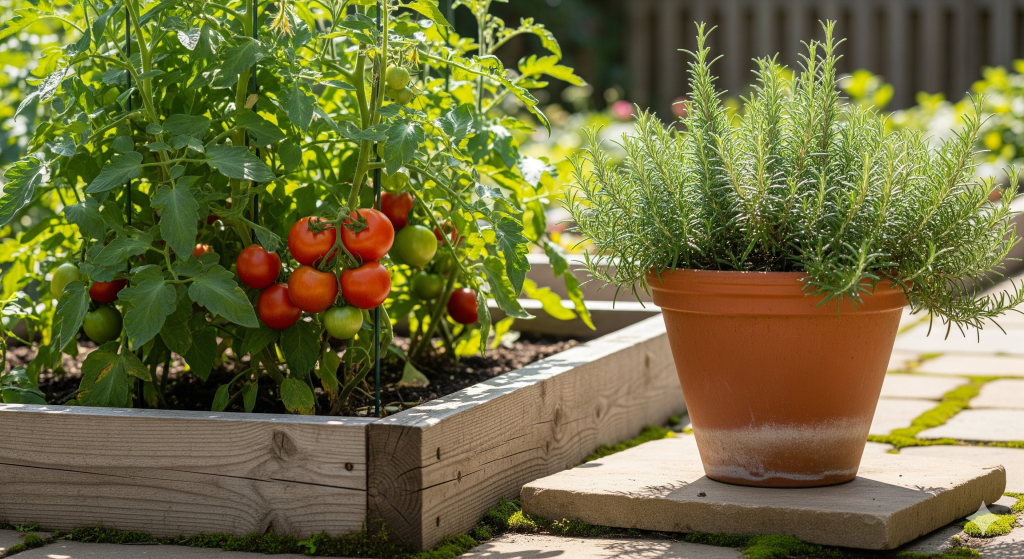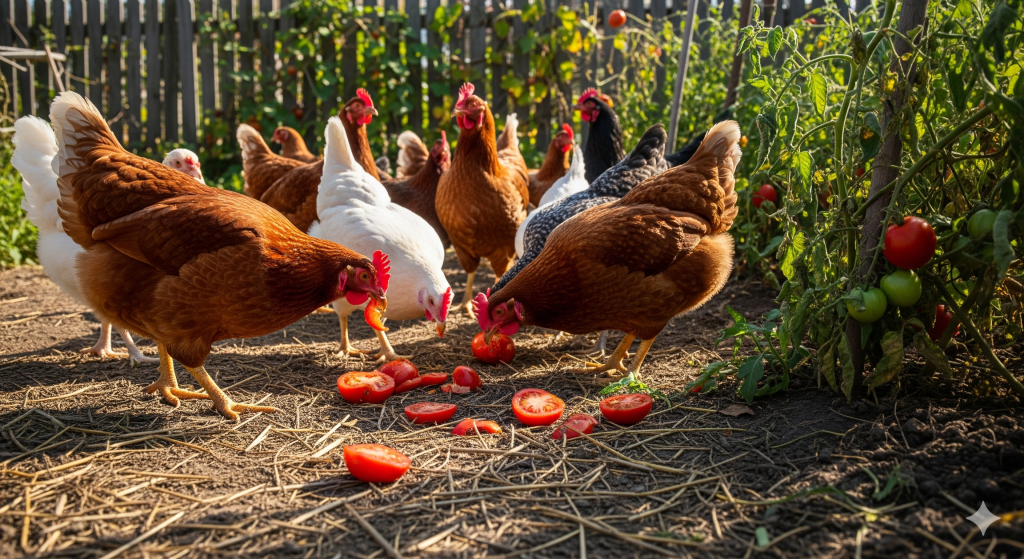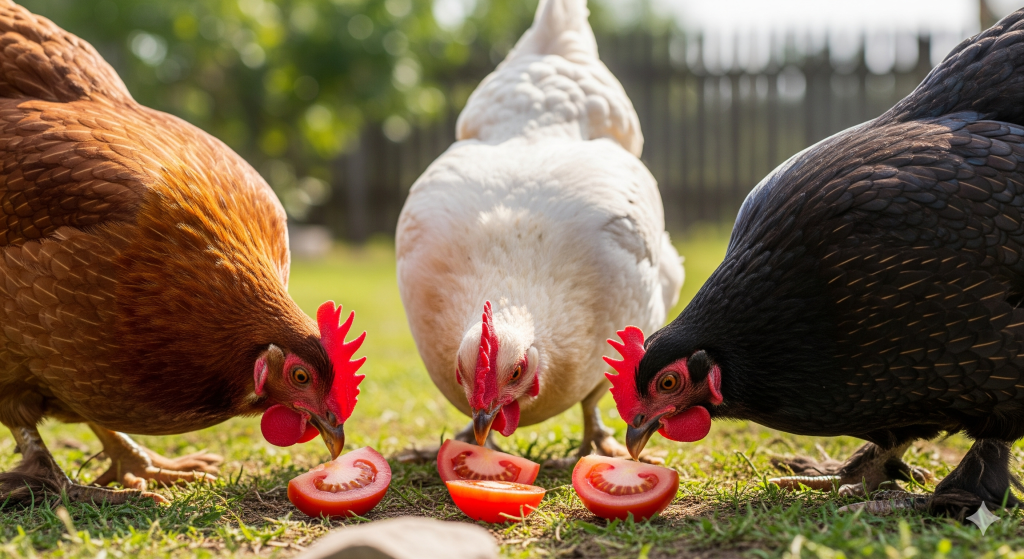Table of Contents
Companion planting is an age-old gardening strategy that pairs different plants for mutual benefit. When planning a garden, especially one that includes both vegetables and herbs, understanding these partnerships can be the key to a thriving ecosystem. A common question for lovers of Mediterranean flavors is, “Can you plant rosemary by tomato plants?” While both evoke images of sun-drenched Italian cuisine, the answer is a bit complex. It’s generally not recommended to plant rosemary and tomatoes in the same soil, primarily because they have fundamentally different needs for water and soil type.
However, this doesn’t mean they can’t be neighbors. With strategic placement, you can still reap the benefits of having this aromatic herb near your tomato patch. This guide will explore the nuances of this pairing, how to make it work in a raised bed, and what other plants make the best companions for rosemary.
Can You Plant Rosemary with Tomatoes in a Raised Bed?
Planting rosemary and tomatoes together in the same raised bed is challenging due to their conflicting requirements.
- Water Needs: Tomatoes are thirsty plants that require consistently moist soil to produce juicy, crack-free fruit. Rosemary, on the other hand, is a drought-tolerant Mediterranean herb that thrives in dry, well-draining conditions and is highly susceptible to root rot if overwatered.
- Soil Preferences: Tomatoes are heavy feeders that need rich, fertile soil amended with plenty of compost. Rosemary prefers leaner, sandier, or even gravelly soil that mimics its native habitat.
Planting them in the same soil mix will inevitably lead to one plant suffering—either the rosemary will be overwatered, or the tomato will be too dry.
The best solution for a raised bed garden is to use separate containers. Plant your tomatoes in the main bed with rich soil, and plant your rosemary in its own pot placed nearby. This allows you to cater to each plant’s specific needs while still enjoying the potential benefits of proximity. The strong scent of the potted rosemary can help deter pests from the tomatoes, and both plants will enjoy the full sun of a typical raised bed location.
Bad Companion Plants for Rosemary
Rosemary is a hardy and generally easy-going plant, but it does have a few neighbors it would rather avoid. The main conflicts arise from differing needs for water and soil.
Plants to keep away from rosemary include:
- Mint: Mint is an aggressive spreader and prefers much more moisture than rosemary. It can quickly overtake the space and create overly damp conditions.
- Basil: Like mint, basil thrives in rich, consistently moist soil, a direct contrast to rosemary’s preference for dry conditions.
- Cucumbers and Pumpkins: These water-loving vegetables require frequent irrigation, which would be detrimental to a nearby rosemary plant’s health.
- Fennel: Fennel is known to inhibit the growth of many other plants and is generally best grown on its own.
Ready to Take Your Self-Sufficiency to the Next Level?

If you love the self-sufficient lifestyle, this is the only guide you’ll ever need. Learn how to generate your own power, secure your water supply, and become truly independent. No fluff, just actionable plans.
➡️ Check out The Self-Sufficient Backyard and start your journey today!
What Vegetables Can I Plant Next to Rosemary?
Rosemary’s strong scent is a powerful tool for natural pest control, making it an excellent companion for several vegetable crops, provided their basic needs align.
Good vegetable companions for rosemary include:
- Cabbage Family (Brassicas): Rosemary is famous for repelling the cabbage moth, whose larvae can decimate crops like broccoli, cabbage, cauliflower, and kale.
- Beans: The scent of rosemary can help deter the Mexican bean beetle, a common pest of bean plants. In return, beans fix nitrogen in the soil, which can benefit the rosemary.
- Carrots and Parsnips: Rosemary’s aroma can help to mask the scent of carrots, confusing and repelling the carrot rust fly.
- Peppers: Peppers and rosemary share a love for full sun and well-draining soil (though peppers need more water). Their proximity can help deter pests like aphids.
Conclusion
While planting rosemary directly in the same soil as your water-loving tomato plants is a recipe for trouble, they can still be excellent garden allies. By using containers to separate them, you can cater to their individual needs while still allowing the tomato plants to benefit from the pest-repelling aroma of the nearby rosemary. This strategic approach allows you to create a diverse and resilient garden ecosystem. By understanding which plants work well with rosemary—like brassicas, beans, and carrots—and which to avoid, you can harness the power of companion planting to cultivate a healthier, more productive, and beautifully fragrant garden.



